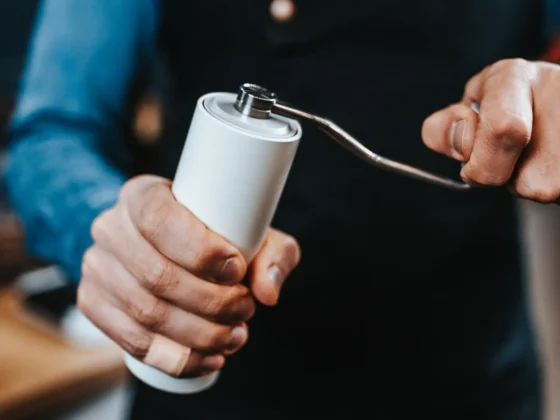There’s a beguiling aroma that arises from the Indonesian archipelago, a siren’s call for coffee connoisseurs worldwide – the enchanting allure of Sulawesi coffee. This exquisite variety is a hidden gem nestled within the lush, rugged landscapes of Sulawesi, an island known for its diverse ecology and vibrant cultures. But the heart of Sulawesi beats not just in its natural splendor or rich traditions; it pulses in the rhythm of its coffee plantations, in the hands of those who cultivate, and in the aroma of the beans they so lovingly produce.
The journey of this delectable coffee is steeped in rich history, unique practices, and a deep commitment to quality that reverberates in every cup. From the ancient roots tracing back to the Dutch colonial era to the modern cultivation methods that bring out its distinctive flavor profile, This coffee is a testament to the island’s resilience and spirit. Each bean is a piece of Sulawesi’s history, a narrative of its people, and a promise of its future.
Join us as we delve into the world of this delightful coffee, exploring its unique aroma, unraveling its history, understanding its production, and discovering why this Indonesian coffee variety is loved and celebrated worldwide. This is not just about understanding a type of coffee; it’s about embarking on a journey that will take us from the seed to the cup, with many captivating stories in between. Let’s begin this expedition, one that, much like the taste of Sulawesi coffee itself, promises to be unforgettable.
Sulawesi Coffee: Key Takeaway
- Historical Significance: this Indonesian gem has a rich history dating back to colonial times. It has evolved over time, with the influence of the Dutch, to become one of the most prized coffee varieties in the world.
- Unique Flavor Profile: This coffee is known for its full-bodied, complex flavor profile that includes notes of dark chocolate, ripe fruits, and exotic spices, setting it apart from other coffee varieties.
- Impact on Local Communities: Coffee cultivation in Sulawesi significantly impacts local communities, providing a substantial source of income, fostering social cohesion, and encouraging sustainable practices.
- Quality and Processing: The quality of this type of coffee is maintained through meticulous cultivation and processing methods, resulting in a consistently high-quality product.
- Enjoyment and Purchase: this coffee offers a unique experience for coffee lovers, from brewing the perfect cup to pairing it with suitable foods. It can be purchased from specialty coffee retailers who emphasize fair trade and sustainable practices.
The History and Origin of Sulawesi Coffee
The story of this delectable coffee is as rich and layered as its taste, with roots that delve deep into the island’s past. It’s a tale that speaks of ancient traditions, colonial influences, and the resilience of the present-day coffee industry in Sulawesi.
Ancient Roots: Tracing Back the Coffee Cultivation in Sulawesi
Coffee cultivation in Sulawesi began long before modern agricultural methods were introduced. The coffee plant was not native to this region but is believed to have been brought here by merchants and explorers from the Arabian Peninsula. The island’s fertile soil, high altitude, and tropical climate provided an ideal environment for growing coffee.

Initially, coffee was cultivated for domestic consumption, with traditional farming methods being used. Coffee cultivation was largely a family affair, with knowledge passed down through generations. These practices are still visible in parts of the island today, where smallholder farmers meticulously tend to their coffee trees with an almost reverential dedication.
Dutch Influence on Sulawesi Coffee
The true turning point in Sulawesi’s coffee history came during the Dutch colonial period in the 17th and 18th centuries. Recognizing the potential of this robust crop, the Dutch introduced new coffee varieties and expanded the coffee cultivation areas. They also initiated more systematic agricultural practices to boost productivity and quality.
The Typica variety was introduced to the Dutch in the 1700s. This particular variety is known for its resistance to disease and its ability to produce a high-quality cup profile, making it an ideal choice for the island’s unique climate and geography.

However, this period was not without its challenges. The colonial government often imposed high taxes and quotas on coffee farmers, leading to periods of economic struggle. Despite these challenges, the seeds were sown for Sulawesi’s future as a major coffee-producing region.
Modern-Day Sulawesi Coffee: A Look at the Current Scenario
Fast forward to the present day, and Sulawesi coffee has become an integral part of the global coffee landscape. The island is particularly renowned for its Toraja coffee, a premium specialty coffee grown in the mountainous region of Tana Toraja.
In addition to the traditional Typica, farmers in Sulawesi now also cultivate other varieties. Modern farming techniques have been adopted, but many farmers still maintain the traditional practices that give this coffee its distinct character.

Sulawesi’s coffee industry has faced and overcomes numerous challenges, from colonial-era taxation to the rust disease that threatened coffee crops in the 1970s. Despite these obstacles, the spirit of resilience and dedication to quality has prevailed, making this delectable coffee a beloved choice for coffee enthusiasts around the world.
Today, the island’s coffee industry continues to evolve, with a renewed focus on sustainability and fair trade practices. The aim is not just to preserve the rich legacy of this delightful coffee, but also to ensure its future for generations to come.
The Unique Characteristics of Sulawesi Coffee
This type of coffee is distinct, not just in its history, but also in the unique characteristics it brings to every cup. Its flavor profile, shaped by the island’s geography and distinct processing methods, sets it apart from coffees grown in other regions.
The Flavor Profile: What Makes Sulawesi Coffee Stand Out
This coffee is known for its full-bodied and smooth texture, often described as velvety. It features low acidity, lending a sense of balance and consistency in every sip. But what truly makes it stand out is its complex flavor.

Every cup unveils layers of taste that unfold gradually, allowing you to discover notes of dark chocolate, spices, and a subtle hint of ripe fruit. Some varieties, like the Toraja coffee, may also present a sweet aftertaste, making it an exceptionally unique experience for coffee lovers. This richness of flavor makes this coffee perfect for both espresso and drip brew methods.
The Role of Sulawesi’s Geography in Shaping Coffee Quality
Sulawesi’s geographical features play a significant role in shaping the quality and flavor of its coffee. The island is characterized by rugged highlands and volcanic soils, which offer an ideal environment for coffee cultivation.
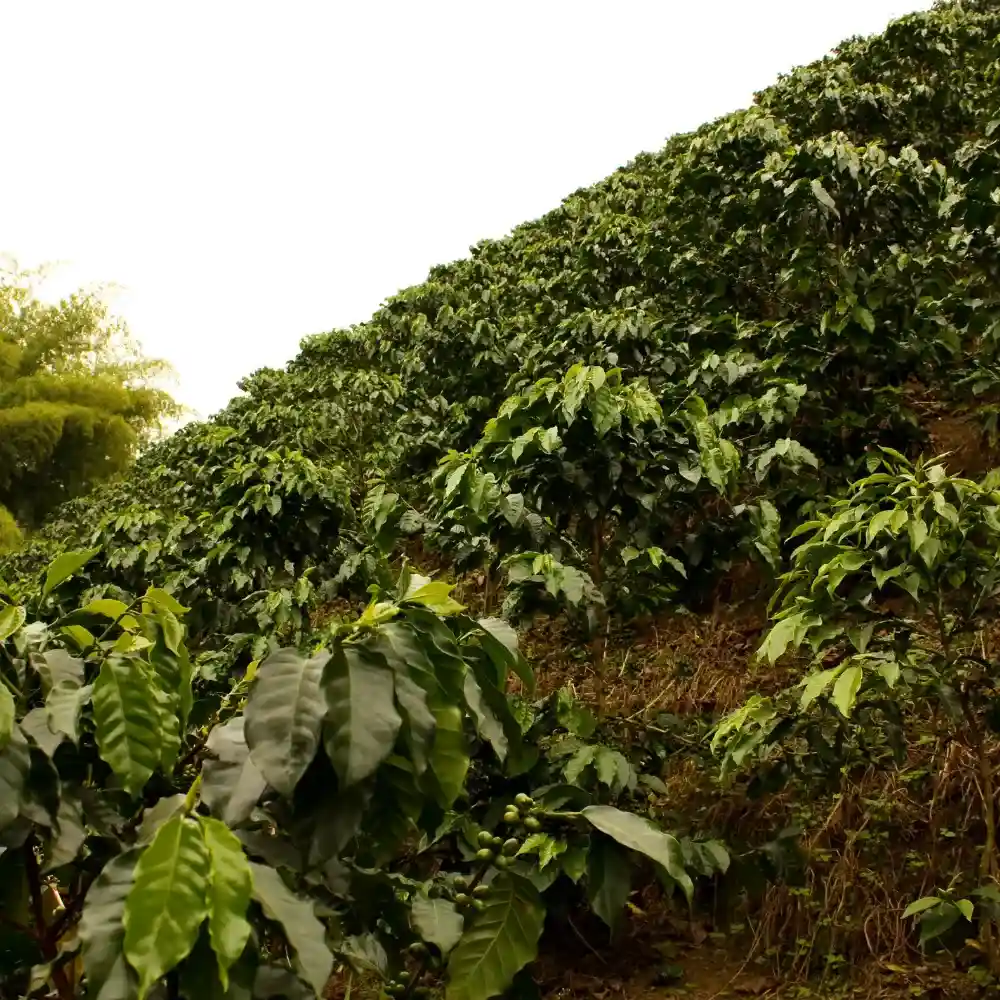
Most coffee plantations in Sulawesi are located at high altitudes, often above 1,200 meters. This elevation provides a cooler climate, which slows down the growth of coffee cherries and allows them to develop more complex sugars, contributing to the coffee’s unique flavor profile.
The mineral-rich volcanic soil of Sulawesi also plays a part in this harmony, providing essential nutrients for coffee trees. The result is a coffee bean that carries the essence of its terroir, reflecting Sulawesi’s unique geographical features in its taste.
Processing Methods and Their Impact on Sulawesi Coffee
The processing method used in Sulawesi also contributes significantly to the coffee’s distinct characteristics. The most common method used here is the wet processing or washed method, where the coffee cherries are depulped, fermented, washed, and then dried.

This method, combined with the traditional practice of sun-drying the beans, contributes to the coffee’s clean taste and consistency. It also allows the intrinsic flavors of the coffee bean to shine through, resulting in a cup that is true to the unique terroir of Sulawesi.
However, many Sulawesi farmers are also experimenting with other processing methods like natural and honey processes, adding to the diversity of flavors available within this delectable coffee. These practices reflect the innovative spirit of Sulawesi’s coffee industry, always pushing boundaries while preserving the traditional characteristics that make their coffee so special.
The Journey from Bean to Cup: Sulawesi Coffee Production
Understanding Sulawesi coffee means embarking on a journey from the bean to the cup. This voyage unveils the meticulous process involved in coffee planting and cultivation, the careful harvesting and processing of coffee beans, and the strategic methods employed in exporting this coffee to the world.
Coffee Planting and Cultivation in Sulawesi
Coffee planting and cultivation in Sulawesi is a blend of modern agricultural techniques and age-old traditions. Smallholder coffee farmers begin the process by planting coffee seedlings in nurseries. Once these seedlings are robust enough, usually after a few months, they are transplanted into the coffee fields.

The coffee trees are then meticulously cared for, with farmers often working by hand to ensure the health of each tree. This includes regular pruning, fertilization, and pest management to maintain the quality and productivity of the plants.
As mentioned before, the high altitude, fertile volcanic soil, and tropical climate of Sulawesi provide a favorable environment for coffee cultivation. Most coffee plantations are located in the mountainous regions of South Sulawesi, like Tana Toraja and Enrekang, where the conditions are perfect for growing the high-quality beans Sulawesi is known for.
Harvesting and Processing of Sulawesi Coffee Beans
Harvesting typically begins when the coffee cherries turn a bright, crimson red, signaling that they are ripe and ready to be picked. With utmost care, workers meticulously pick only the ripe cherries during harvesting, ensuring the highest quality of coffee. This careful attention to detail sets this distinctive coffee apart, reflecting the dedication and craftsmanship that goes into every bean.

Once the cherries are harvested, they undergo the wet processing method, which involves depulping, fermenting, washing, and drying the beans. This method is preferred in Sulawesi because it results in a clean, consistent, and high-quality cup profile.
After processing, the coffee beans are sorted and graded according to size and quality. Only the best beans are selected for export, ensuring that this delightful and unique coffee always meets the high standards expected by coffee connoisseurs around the world.
The Export Journey: Bringing Sulawesi Coffee to the World
After the beans are processed and graded, they embark on their journey to coffee lovers worldwide. The beans are packed into jute bags and transported from the mountainous regions to the coastal cities, from where they are shipped to various countries.
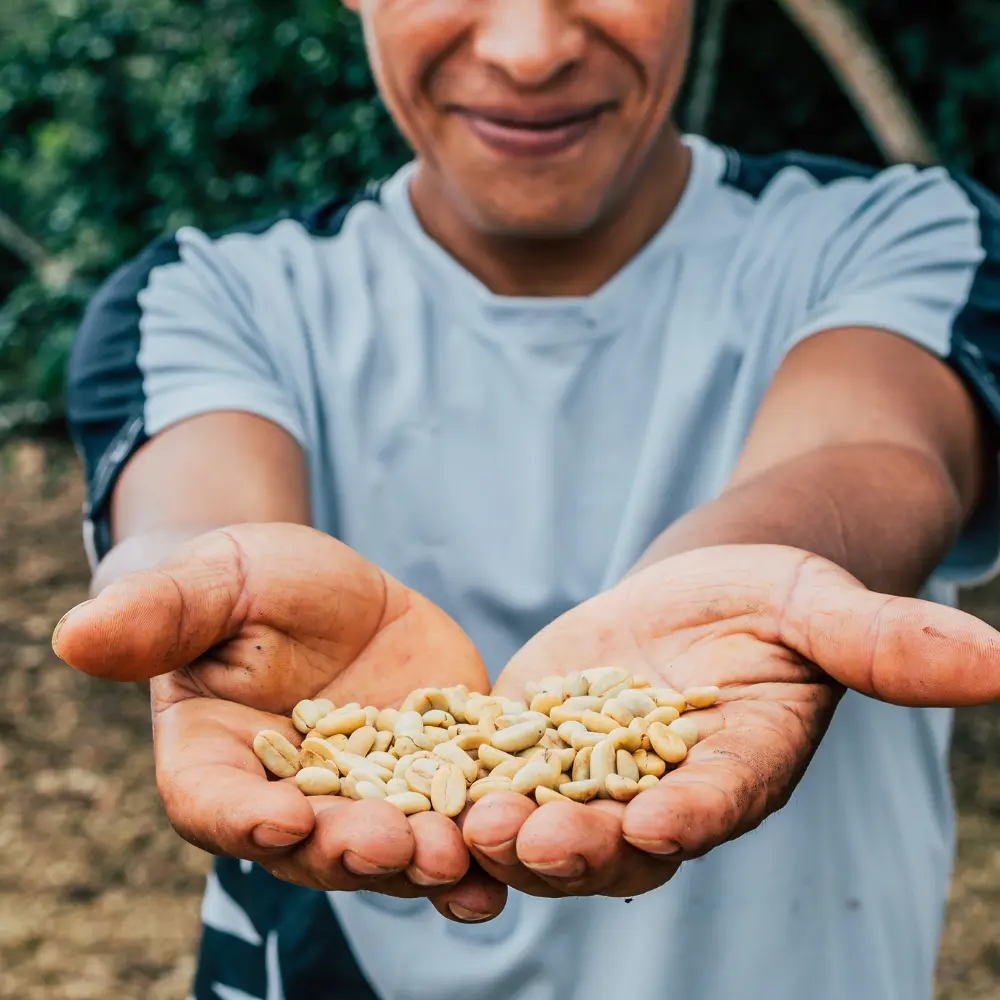
This type of coffee has a strong presence in the global specialty coffee market. It is particularly popular in the United States, Japan, and several European countries, where consumers appreciate its unique flavor profile and the traditional farming practices used in its cultivation.
In recent years, the Sulawesi coffee industry has also been focusing on improving traceability and sustainability. These efforts are aimed at enhancing the quality of the coffee, ensuring fair prices for farmers, and preserving the environment. By doing so, this coffee is not only maintaining its reputation for quality but is also setting a standard for responsible coffee production.
Sulawesi’s Coffee Jewels: Top Bean Varieties to Explore
When it comes to Sulawesi coffee, several notable bean varieties have garnered international recognition for their distinctive flavor profiles and exceptional quality. Here, we highlight some of the best coffee beans that are worth exploring for every coffee aficionado.
Toraja Coffee
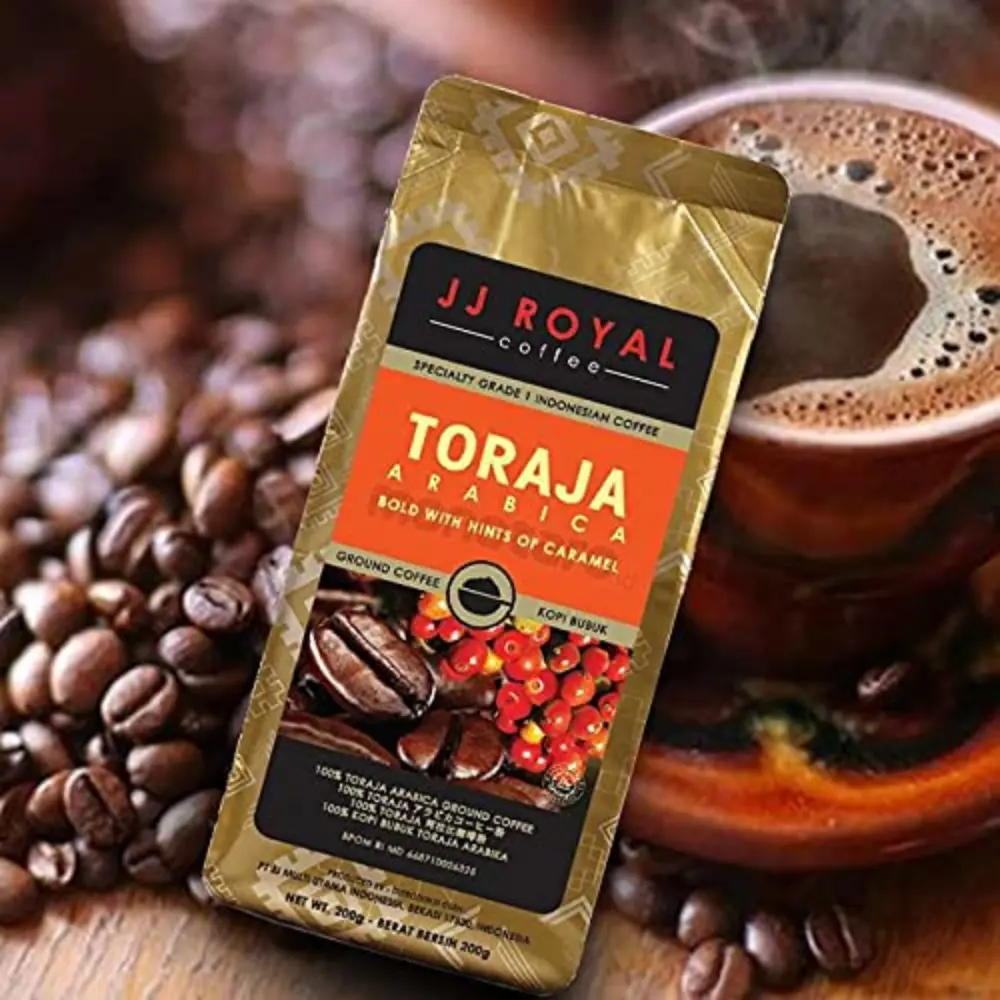
Perhaps the most famous of all Sulawesi coffee beans, Toraja coffee, grown in the mountainous region of Tana Toraja, is renowned for its full-bodied texture, bright acidity, and complex flavors. It boasts a unique flavor profile featuring notes of ripe fruit, dark chocolate, and exotic spices, often with a distinct earthy undertone. The beans are typically wet-processed, resulting in a clean, consistent, and high-quality brew that has made Toraja a favorite among coffee connoisseurs worldwide.
Kalosi Coffee

Originating from the Enrekang region in South Sulawesi, Kalosi coffee is another premium variety that’s well-regarded in the coffee community. Known for its low acidity and heavy body, Kalosi coffee offers a smooth and rich flavor profile. It often presents a delightful combination of nutty and spicy notes, with hints of chocolate, making it a well-balanced brew that’s both comforting and invigorating.
Mamasa Coffee
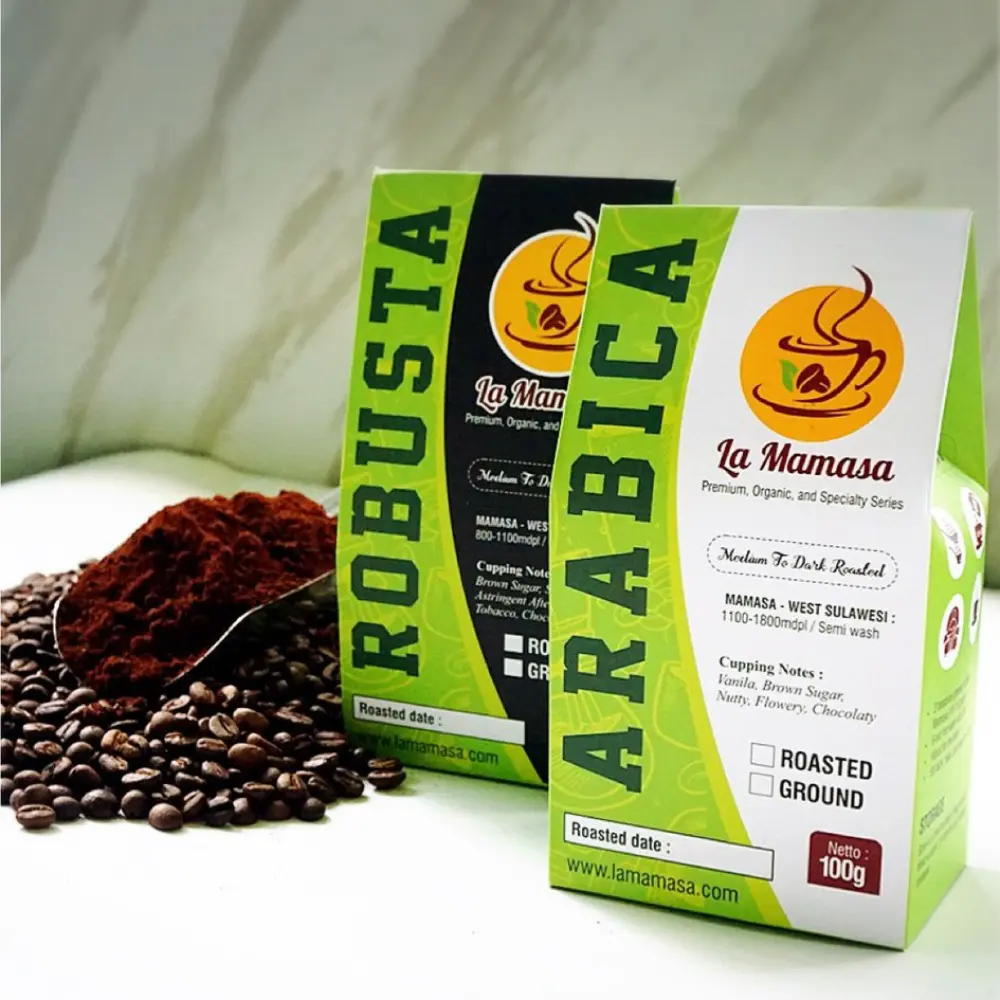
Mamasa coffee, grown in the Mamasa Valley west of Toraja, shares many characteristics with its more famous counterpart, Toraja coffee. However, Mamasa coffee tends to be slightly milder, with more balanced acidity. Its flavor profile is marked by nutty and fruity notes, often with a touch of spice, offering a subtly different but equally enjoyable tasting experience.
These are just a few examples of the top-quality coffee beans available. Each variety offers a unique tasting experience, reflecting the diverse growing conditions and careful processing methods used across the island. No matter which you choose, you’re in for a treat when you explore the world of this delectable coffee.
The Impact of Coffee on Sulawesi’s Local Communities
Coffee in Sulawesi is more than just a beloved beverage; it is a driving force for local communities, playing a significant role in the island’s economy, society, and sustainability efforts. From providing livelihoods to empowering communities and promoting environmental responsibility, coffee’s impact extends far beyond the cup.
Coffee and Economy: The Role of Coffee in Sulawesi’s Prosperity
Coffee holds a central place in Sulawesi’s economy. The island is one of Indonesia’s top coffee-producing regions, with most of the cultivation concentrated in the South Sulawesi province. Thousands of families rely on coffee farming as their primary source of income, making it a crucial pillar of rural economies.
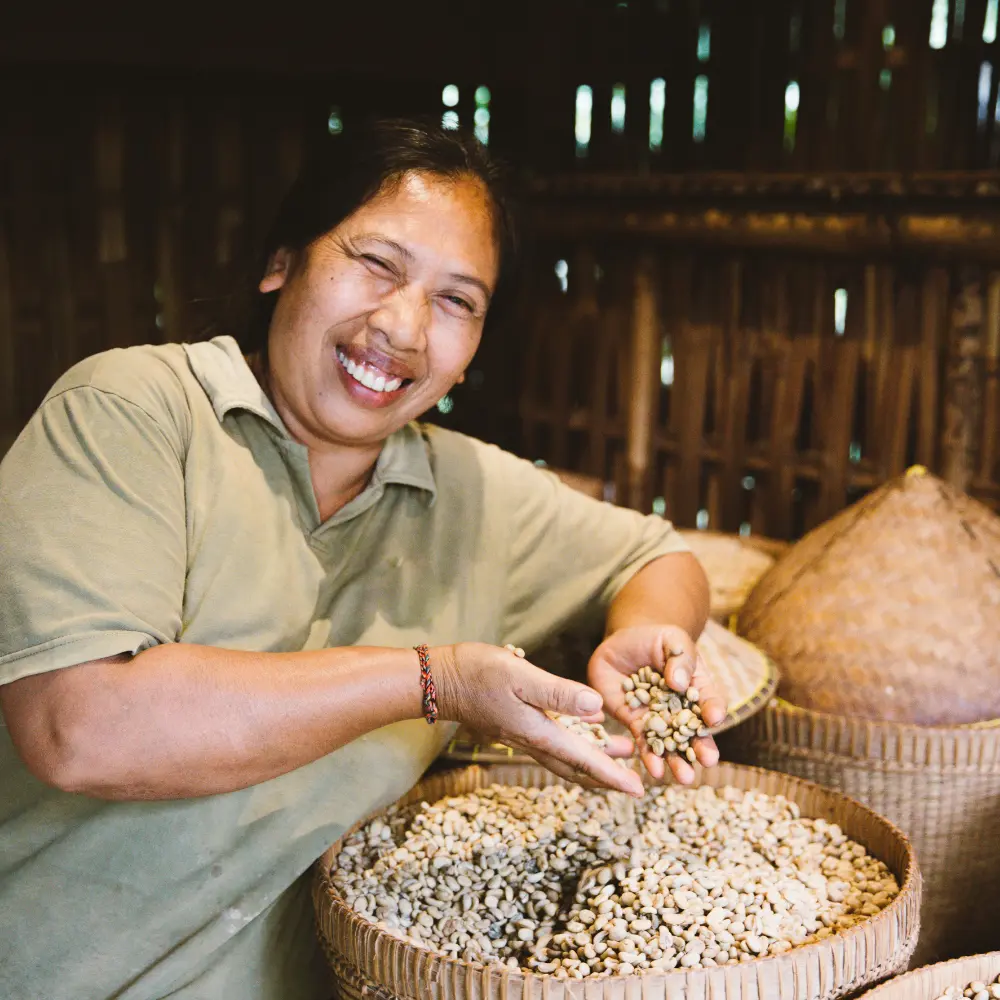
The premium quality of this coffee, especially the Toraja variety, commands high prices in the international market, contributing significantly to the region’s prosperity. Additionally, the coffee industry also creates numerous indirect jobs in related sectors such as processing, transportation, and export, further bolstering Sulawesi’s economy.
The Social Implications of Coffee Cultivation in Sulawesi
Coffee cultivation in Sulawesi is deeply intertwined with the island’s social fabric. It’s not just a crop; it’s a way of life that shapes daily routines, social interactions, and cultural practices. Coffee farming is often a family affair in Sulawesi, with knowledge and skills being passed down through generations. This creates a sense of community and shared identity among the coffee growers.
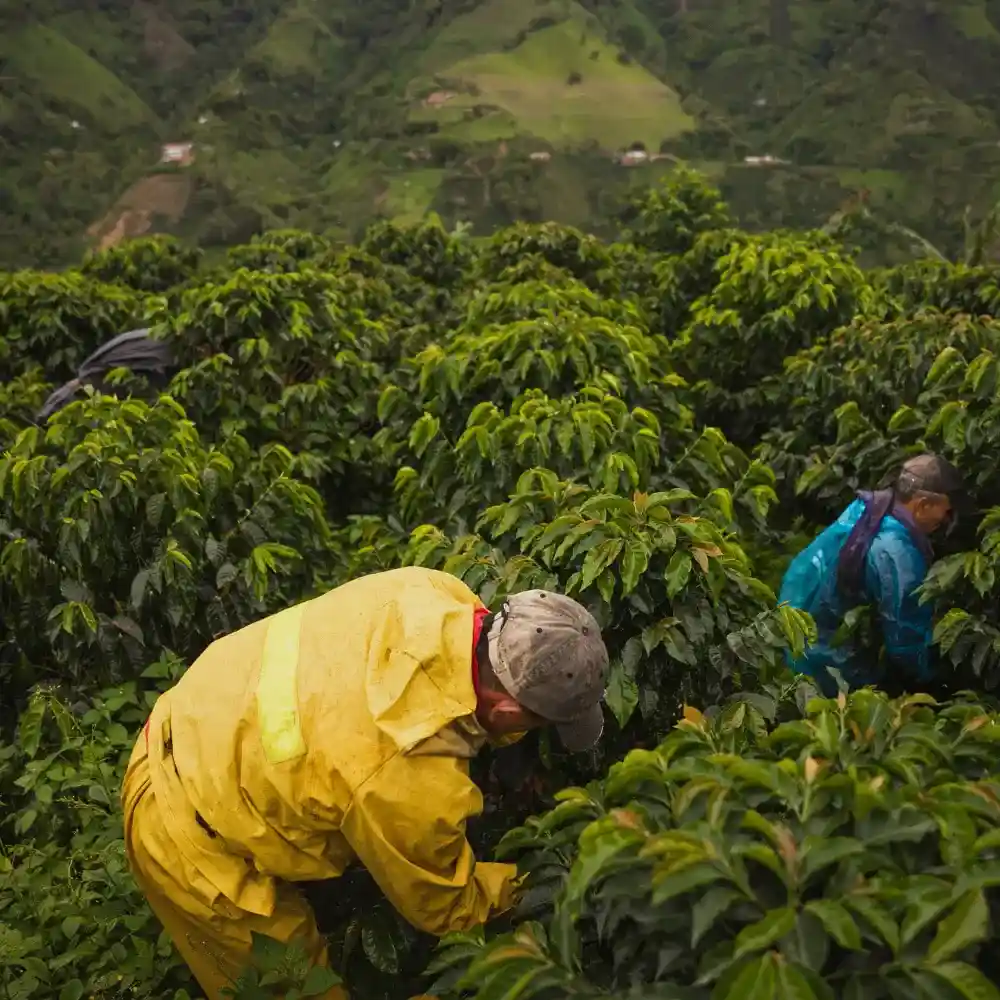
Furthermore, the coffee industry also plays a role in empowering communities. For instance, several cooperatives and community groups provide training and resources to smallholder farmers, helping them improve productivity, quality, and sustainability. These initiatives not only strengthen the local coffee industry but also foster social cohesion and empowerment.
Sustainable Coffee Practices in Sulawesi
In recent years, there’s been a growing emphasis on sustainable coffee practices in Sulawesi. This includes implementing organic farming methods, conserving water, preserving biodiversity, and promoting fair trade practices.
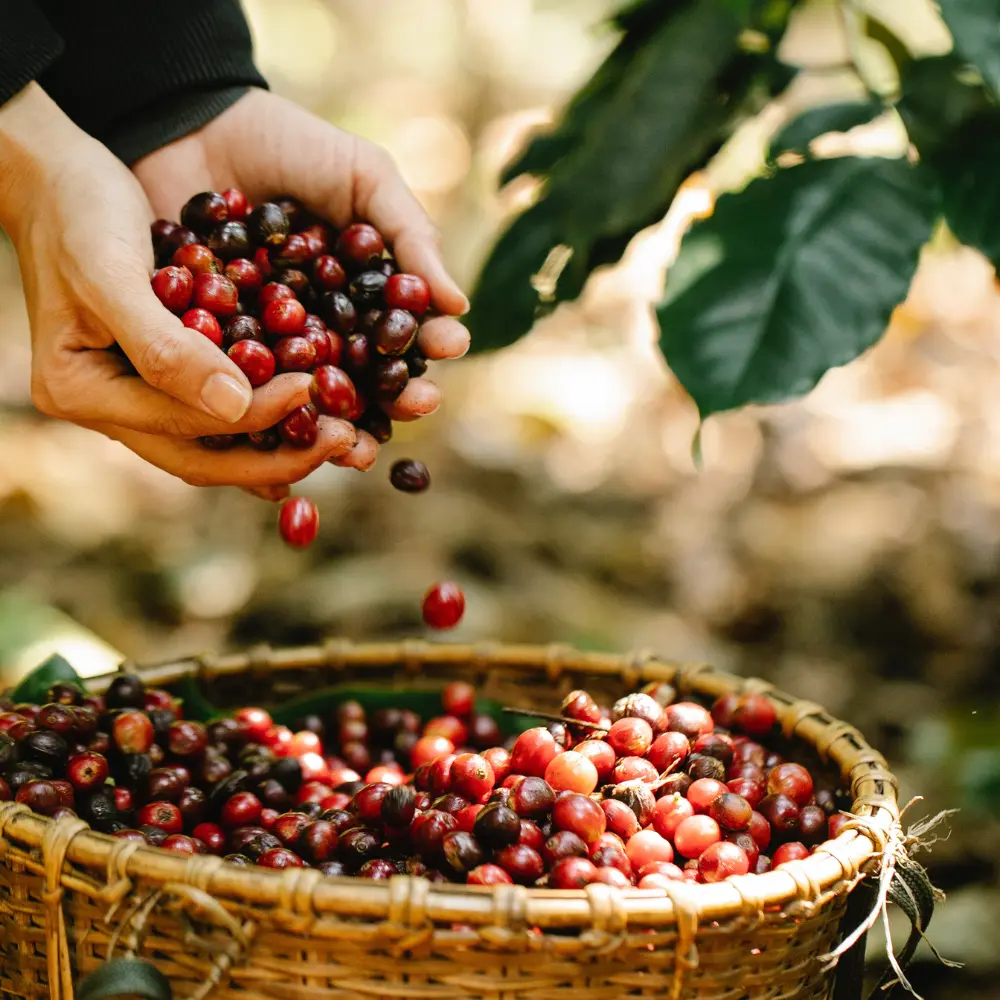
Many farmers are adopting shade-grown coffee cultivation, which not only improves the quality of the coffee but also helps maintain a healthy ecosystem. This method involves growing coffee under the canopy of native trees, providing habitat for local wildlife, and helping preserve the island’s rich biodiversity.
Sulawesi’s coffee industry is also working towards greater traceability and fair prices for farmers. By ensuring fair trade, they aim to improve the livelihoods of coffee growers and encourage sustainable practices.
In essence, sustainable coffee practices in Sulawesi are about striking a balance between producing high-quality coffee, ensuring the well-being of local communities, and preserving the island’s unique environment. This commitment to sustainability further amplifies the impact of coffee on Sulawesi’s local communities, making every cup of joe a testament to the harmony between people and nature.
Enjoying Sulawesi Coffee: A Guide for Coffee Lovers
For coffee lovers around the world, the journey of exploration is never truly complete without a taste of Sulawesi coffee. This section provides a guide on brewing the perfect cup, some pairing suggestions to enhance your coffee experience, and tips on where to buy authentic Sulawesi coffee.
Brewing the Perfect Cup of Sulawesi Coffee
To fully appreciate the unique flavors of this coffee, attention to the brewing process is crucial. It starts with freshly roasted and ground coffee, ideally ground just before brewing. This coffee’s beans are versatile and can be brewed using various methods, including drip, pour-over, French press and espresso.
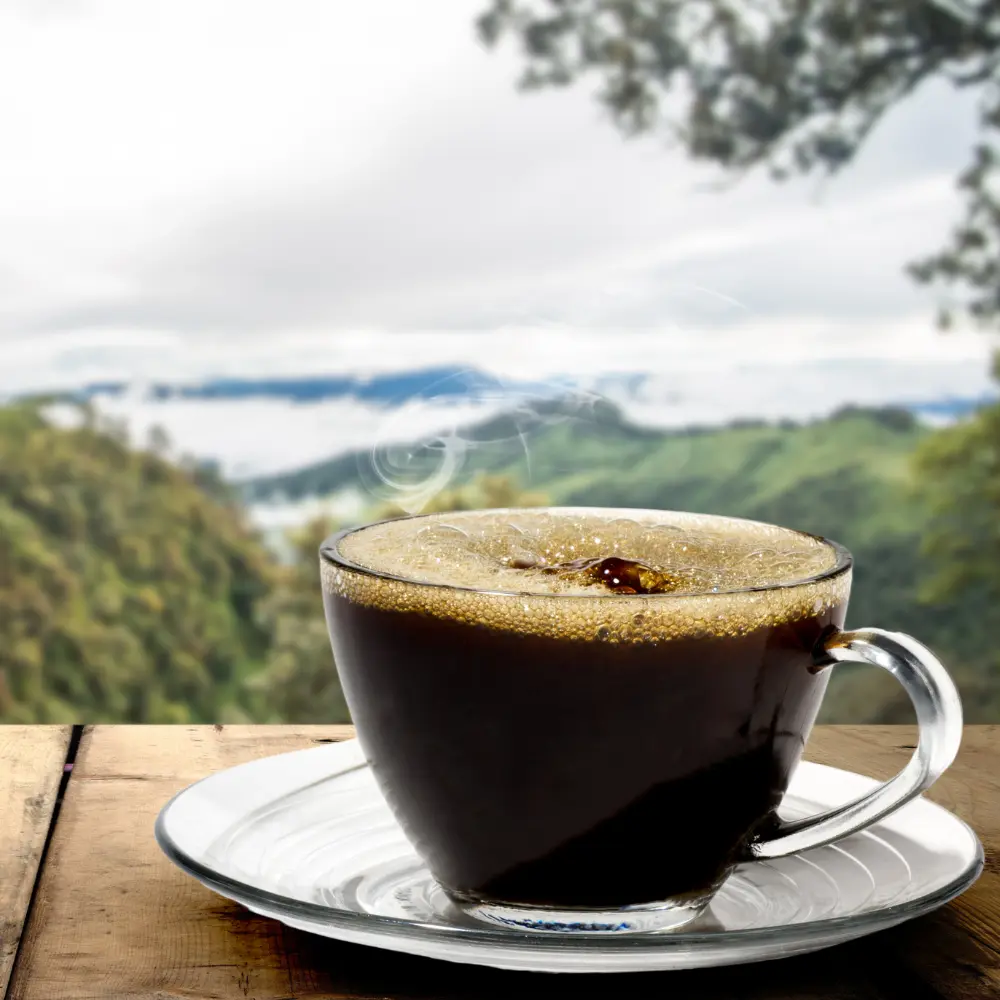
For a balanced taste, a general guideline is to use 1 to 2 tablespoons of coffee grounds for every six ounces of water. However, feel free to adjust the ratio to your preference. If you’re using the pour-over or drip method, aim for a brewing time of about 3 to 4 minutes. For a French press coffee maker, let the coffee steep for about 4 to 5 minutes before pressing.
Water temperature is also key. The ideal water temperature for brewing coffee is between 195°F (90.5°C) and 205°F (96.1°C). If the water is too hot, it can over-extract the coffee, leading to a bitter taste. Too cool, and the coffee may be under-extracted and weak.
Finally, remember that the best cup of coffee is the one you enjoy the most. So don’t be afraid to experiment with different brewing methods and ratios until you find your perfect cup.
Pairing Suggestions for Sulawesi Coffee
This coffee’s rich and complex flavor profile makes it a delightful partner for many foods. Its notes of dark chocolate and spice pair wonderfully with pastries, especially those containing chocolate, cinnamon, or nuts. Try it with a chocolate croissant or a slice of walnut cake for a truly indulgent experience.
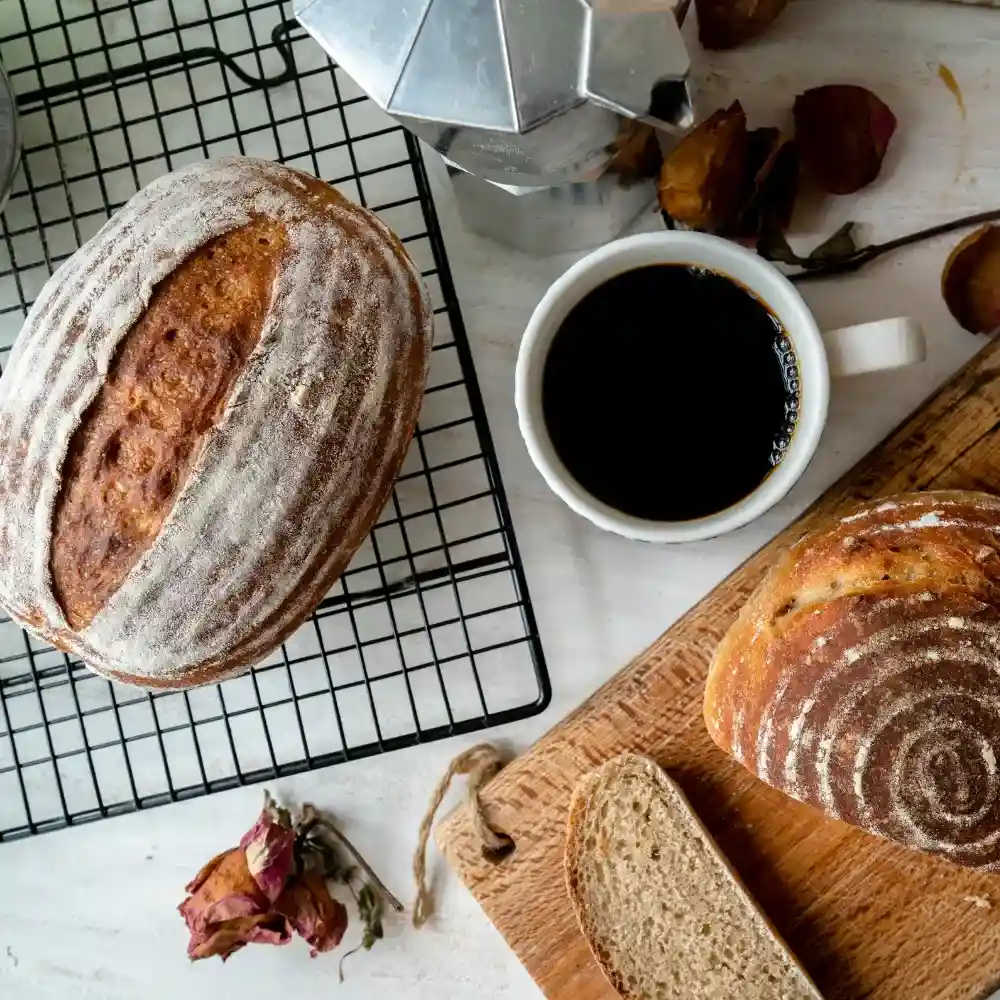
For a savory pairing, consider foods that complement the coffee’s earthy undertones. Cheese, especially aged ones, can be a great match. Similarly, breads like sourdough or rye can accentuate the coffee’s subtle fruit notes.
Finally, remember that pairing is about enhancing enjoyment. Experiment with different foods to discover what you enjoy most with your cup of joe.
Where to Buy Authentic Sulawesi Coffee
Finding authentic Sulawesi coffee can be a delightful quest. Look for specialty coffee retailers, either online or in-store, who source their beans directly from Sulawesi. Check for details about the coffee’s origin, variety, and processing method to ensure its authenticity.
Many reputable coffee sellers also provide information about the farmers and the growing conditions, giving you a glimpse into the coffee’s journey from bean to cup. Opt for sellers who emphasize fair trade and sustainable practices, as this not only guarantees quality but also supports the local communities in Sulawesi.
Finally, remember that freshness is key when buying coffee. Look for sellers who roast their beans on-demand or within a few days of shipping. This ensures that you receive the freshest beans, ready to be brewed into a delicious cup of joe.
Top-Rated Brands Offering Sulawesi Coffee
Navigating the world of coffee brands can be a daunting task, particularly when you’re looking for specialty coffees like those from Sulawesi. To simplify your search, we’ve curated a list of some of the best brands that offer Sulawesi coffee.
Starbucks Reserve

Starbucks Reserve, the specialty arm of the globally recognized coffee brand Starbucks, offers exceptional Sulawesi single-origin coffee. Known for sourcing and roasting some of the rarest and most extraordinary coffees, Starbucks Reserve’s coffee is a testament to the brand’s commitment to quality and flavor.
Volcanica Coffee
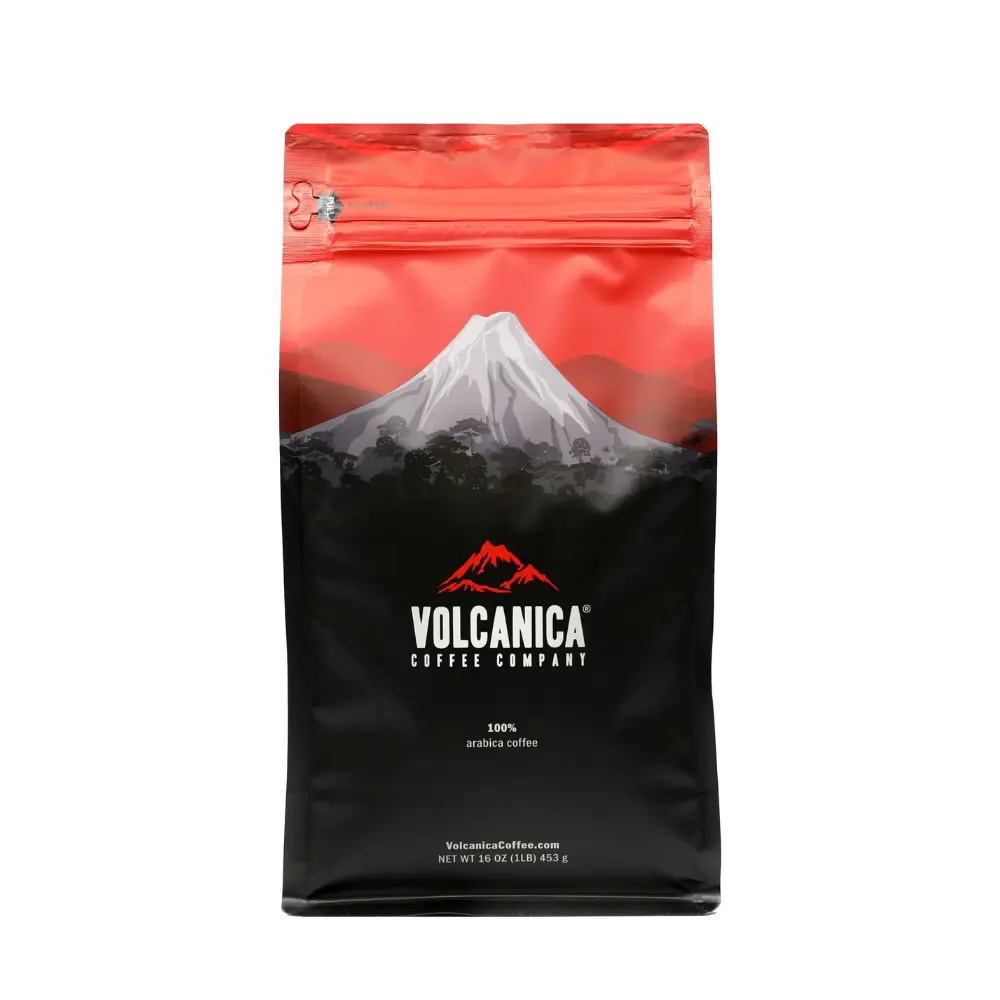
As a specialty retailer of exotic coffee, Volcanica Coffee offers a wide range of single-origin coffees, including Sulawesi Toraja Coffee. The brand’s commitment to freshness, quality, and fair trade practices makes it a great choice for those looking to explore this delectable coffee.
Peet’s Coffee

Another well-respected name in the coffee industry, Peet’s Coffee, offers Sulawesi coffee as part of their small-batch explorations series. Peet’s takes pride in their deep-roast process that extracts the best flavor from each bean, creating a cup of joe that’s truly exceptional.
Coffee Bean Direct

Coffee Bean Direct is a one-stop shop for coffee lovers who prefer to roast their beans at home. The company offers green Sulawesi coffee beans, allowing customers to have the freshest possible coffee experience. Their commitment to direct sourcing ensures high-quality beans from Sulawesi.
- Dark Sulawesi Kalossi: Known for its heavy body, this bean features rich, earthy flavor notes and a heady, exotic aroma. This French Roast retains its inherent smoothness while adding substantial body and flavor
- One of a Grind: We source coffee from Brazil, Costa Rica, Sumatra, Kenya and more to find the most flavorful beans for your next cup. Try iced, as cold brew, with a French press, AeroPress or pour over
- So Many Choices: We’re passionate about coffee. Try our product lines of Single Origin, Decaffeinated, Blends, and Tea. Also explore our light, medium and dark roasts
- Expertly Roasted: Expect more from our beans than just a jolt of caffeine. We offer coarse, finely ground and whole bean options. Enjoy peak flavor and aroma in your latte, mocha, espresso or drip
- Coffee Bean Direct: Our dedication to roasting expertise, modern convenience, and fair pricing allows us to bring you the best coffees and teas imaginable in artisanal blends and flavors
Joe’s Coffee House
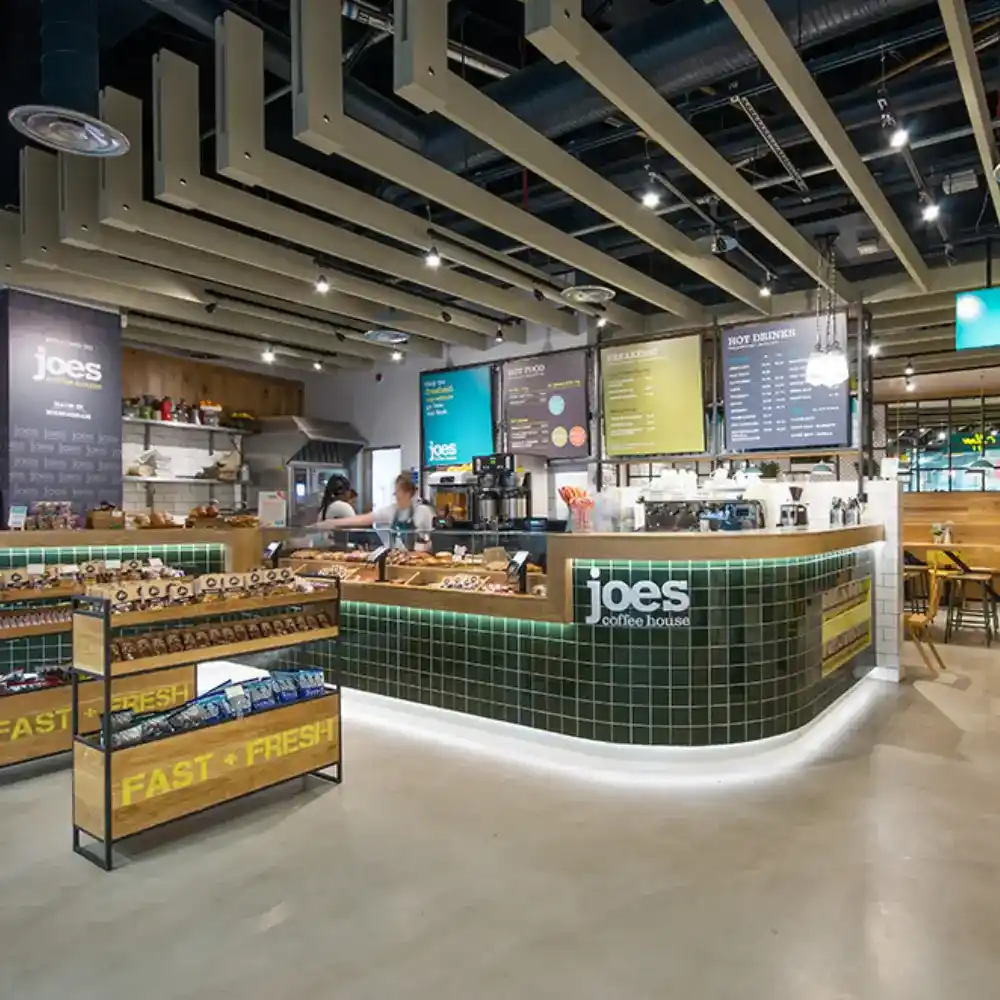
Joe’s Coffee House, a brand known for its selection of specialty coffees, offers exquisite Sulawesi Toraja coffee. Their beans are sourced directly from the Toraja highlands, ensuring authentic, high-quality coffee. The brand’s commitment to providing fresh, top-grade, and responsibly sourced coffee makes it a great choice for coffee enthusiasts.
Sweet Maria’s

Sweet Maria’s is a unique brand that caters to home coffee roasters, providing a wide variety of green coffee beans, including those from Sulawesi. Their offerings allow customers to roast the beans at home to their liking, ensuring the freshest possible cup of coffee. Sweet Maria’s dedication to direct sourcing and transparent trade practices ensures you’re getting top-quality Sulawesi beans while supporting the farmers who grow them.
These brands stand out for their commitment to quality, sustainability, and fair trade practices. However, as with any coffee purchase, personal preference plays a key role. It’s always a good idea to experiment with different brands until you find the coffee that suits your taste buds best.
Conclusion
From its ancient roots to the rich, velvety cup it produces, Sulawesi coffee indeed holds a unique place in the global coffee scene. Its journey from the high-altitude farms in Sulawesi to coffee lovers worldwide is a testament to the dedication, craftsmanship, and innovative spirit of the local communities that cultivate it.
In every cup of joe, we taste not just the distinct flavors of dark chocolate, ripe fruit, and exotic spices, but also the rich culture and the breathtaking landscapes of the island. It is a celebration of the island’s history, its people, and its commitment to sustainable and responsible coffee production.
As we delve into the intricacies of brewing the perfect cup, experimenting with food pairings, and sourcing the freshest beans, our appreciation for this specialty coffee deepens. This exploration allows us to connect with this delectable coffee on a deeper level, transforming every sip into an experience that transcends geographical boundaries.
Sulawesi coffee, with its captivating aroma, unique history, and meticulous production, indeed offers a remarkable journey for coffee lovers. So, whether you are a seasoned coffee connoisseur or a curious beginner, we invite you to embark on this journey, one cup at a time, and explore the captivating world of this distinctive coffee.
As you discover and enjoy this coffee, remember that every sip is not just a taste of its unique flavor profile, but also a tribute to the island’s vibrant coffee culture, its hardworking farmers, and its commitment to sustainability. So, here’s to Sulawesi coffee— a true gem in the world of coffee!
FAQ
How is Sulawesi Coffee processed?
This coffee is typically processed using the wet processing method. This involves de-pulping, fermenting, washing, and drying the coffee cherries. Such a method results in a clean, consistent, and high-quality coffee that is characteristic of Sulawesi.
What are the social and economic impacts of coffee cultivation in Sulawesi?
Coffee cultivation plays a significant role in Sulawesi's economy, providing income for thousands of families and contributing to rural prosperity. Socially, it fosters a sense of community and shared identity among growers and plays a role in empowering local communities through training and resources.
How to brew the perfect cup of Sulawesi Coffee?
Brewing the perfect cup of joe starts with freshly roasted and ground coffee. The coffee-to-water ratio and brewing time should be adjusted according to personal preference. Sulawesi coffee can be brewed using various methods, including drip, pour-over, French press, and espresso.
Where can you buy Sulawesi Coffee?
Authentic Sulawesi Coffee can be bought from specialty coffee retailers, both online and in-store, that source their beans directly from Sulawesi. It's essential to check for details about the coffee's origin, variety, and processing method, and opt for sellers who emphasize fair trade and sustainable practices.

















